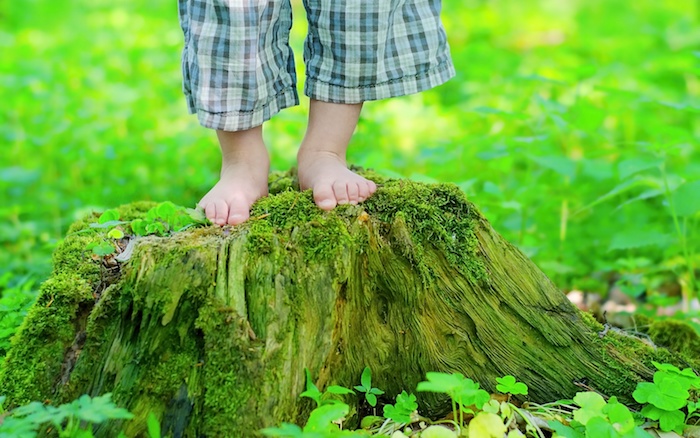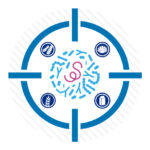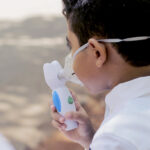Spring health tips: Lyme, seasonal allergies, poison ivy

Dr. Carolyn Sax is a primary care pediatrician at Hyde Park Pediatrics, a Pediatric Physicians’ Organization at Boston Children’s Hospital (PPOC).
As winter recedes, warmer temperatures can introduce a new set of spring health challenges.
Susceptible children start to display symptoms of seasonal allergies as soon as trees and flowers bloom and grass grows — triggering flares of asthma and eczema. And as children spend more time outdoors, parents also need to watch for exposure to ticks and poison ivy.
Here are a few tips to keeping your child healthy this spring.
Protecting your child from ticks and Lyme disease
Ticks begin to hatch as soon as the ground thaws. The early spring nymphal deer tick can be as small as a millimeter in size.
Check your child for ticks each night before bed. Look everywhere — ticks love warm dark places like skin folds and the scalp. If you find a tick, remove it by grasping firmly with tweezers as close to the skin as possible and pulling straight out. To transmit Lyme disease, a tick must be attached for more than 36 hours.
Symptoms of Lyme disease include:
- a red flat rash that expands rapidly — the rash may look like a bull’s-eye, but not every child with Lyme disease will have a rash
- fever
- headache
- muscle and joint pain
- generalized fatigue
Call your pediatric provider within 24 hours if you suspect your child has Lyme disease. You don’t need to keep a tick that is removed from your child. If your provide suspects Lyme, they will start your child on the appropriate antibiotics. Blood tests are not generally helpful for diagnosing early Lyme disease.
Seasonal allergies: What can you do?
During allergy season:
- have your child bathe after spending time outdoors to remove allergens from the skin and reduce symptoms
- keep your child with bad allergies indoors on days with high-pollen counts
- close windows and turn on air conditioning to help remove allergens from indoor air
- use cool compresses to relieve itching or stinging eyes
Children with a history of seasonal allergic rhinitis should start medication BEFORE their symptoms develop. That usually means starting medicines at the end of March or in early April for spring allergies. It’s much easier to prevent allergy symptoms than to relieve them once they’ve appeared.
Medication options include nasal anti-inflammatory sprays, oral antihistamine and eye antihistamine drops. Children with allergic asthma should have an asthma action plan from their pediatric provider and should be using their anti-inflammatory controller inhalers with appropriate spacer device throughout allergy season.
Poison ivy
The rash of poison ivy can result from exposure to any part of the poison ivy plant. Poison ivy appears as soon as plants begin to bloom. Not everyone is allergic to poison ivy. Those who are must learn to recognize the plant and avoid it completely. Remember: “Leaves of three, let it be!”
Treatment for poison ivy depends on the severity of the rash. Poison ivy is not contagious, but it can be spread as long as the plant oil remains on hands or clothing. For susceptible kids, the longer the exposure, the worse the rash.
If you suspect poison ivy exposure:
- bathe your child as soon as possible
- wash any clothing (or pets) that might have brushed against the plant
- treat patches of poison ivy rash, smaller than 6 inches or so on the legs, arms or trunk with over-the-counter hydrocortisone 1 percent ointment twice daily.
- administer Benadryl for itching
If your child has more extensive poison ivy or poison ivy that involves the face or genitals, call your provider within 24 hours to be evaluated.
Learn more about the Pediatric Physicians’ Organization at Boston Children’s Hospital (PPOC).
Related Posts :
-

Team spirit: How working with an allergy psychologist got Amber back to cheering
A bubbly high schooler with lots of friends and a passion for competitive cheerleading: On the surface, Amber’s life ...
-

Could we cure or prevent food allergy by targeting an intestinal protein?
When is food simply nourishing and enjoyable, and when does it provoke an allergic reaction? The answer appears to lie ...
-

Keeping up with the tween skin care trend: What’s in those products?
More teens and tweens are hitting the mall to grab skin-care products they’ve seen on social media — but are ...
-

Will early intervention prevent asthma in school-age children?
Asthma affects about 1 in 10 children, often sending them to the emergency room or causing them to miss school. Allergic conditions ...





